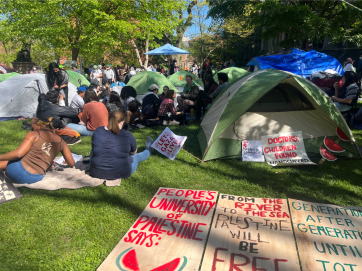R.V. Young joins Andy Nash for a conversation on how English literature and composition were taught decades ago and why they were effective. He is editor of Modern Age at the Intercollegiate Studies Institute.
Key Take-Aways
- 1:00 – Why literature and composition were taught hand-in-hand (4 mins)
- 6:00 – The invasion of English departments by an “education school” (1 min)
- 8:10 – The importance of grammar dismissed as a “changing convention” (1 min)
- 10:45 – Reading “the best” on a topic v. the contemporary in class (2 mins)
- 12:45 – How distant works give perspective to evaluate today’s issues. (1 min)
- 14:15 – What is to become of universities given the trends? (1 min)
Andy’s Show Notes
Robert Young, Professor of English at North Carolina State University, gives his perspectives on how English literature and composition were taught decades ago and why they were effective. He explains how that changed over the years and why today’s approach leaves students quite uneducated. Literature faculty were replaced by composition instructors, mostly non-tenured track or grad students, operating under new theories of education dismissive of literature. But reading great works offered not only the best of what had been thought and written on a subject, but also the distance from one’s contemporary trappings so as to offer a more comprehensive framework in which to evaluate and discern the issues thought and written about today.
The regimen of extensively reading many classic works combined with literature professors laboriously critiquing and grading composition papers provided for and necessitated deeper and more quality thought by the student, allowing for better writing both in substance and in form. But with research faculty taking over and managing composition programs that are made compulsory for the masses of new college students – many of whom hail from grade and high schools that also experienced lowering standards - the demand has been to produce new theories on social science and education, not instill the rigors of the same old method and canon of education. Ironically, the “new theory” de jure on education has become just as fashionable as what is popular amidst the contemporary culture of the post-adolescent, pre-adult college underclassmen age group. Dr. Young illustrates this in an alarming, yet sadly unsurprising example he chronicled in a column for the Intercollegiate Review, which also served as the inspiration for our interview with him.
For many, “higher education” has long since been anything but “higher”, let alone “education”, in any classical sense of the terms. What is to become of the future of the academy? Find out in our interview with Robert Young on Inside Academia.













